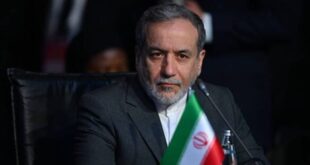Georgia lifted a nine-day state of emergency on Friday and President Mikhail Saakashvili appointed a new prime minister as he prepared to run in a snap presidential election next year.Saakashvili also promised not to impede opposition parties in the run up to the January 5 presidential vote despite ordering police last week to violently crush anti-government protesters and then raid a strongly critical television station.
Saakashvili’s Western allies have been pressing him to lift the restrictions on media and demonstrations since the crackdown, when police fired rubber bullets and tear gas at opposition supporters.
After a specially convened government meeting Saakashvili told journalists he had chosen the 36-year-old chairman of the Bank of Georgia, Lado Gurgenidze, to replace Zurab Nogaideli as prime minister.
Bank of Georgia is the country’s largest bank and the only company listed on the London stock exchange. Gurgenidze studied in the United States and is married to an American.
Observers said Saakashvili was most probably switching his prime minister to show voters he was ready to inject fresh energy into his government ahead of the elections.
Saakashvili swept to power in a peaceful 2003 revolution and the West had promoted him as a staunch democratic and free market reformer.
But last week’s crackdown on freedom of speech shocked Saakashvili’s foreign allies, who said he would need to work to rebuild his democratic credentials.
Although the state of emergency was lifted at 10 a.m. EST on Friday, the Imedi television station will remain off air because it is subject to a court order banning it from broadcasting.
The station is controlled by media mogul Rupert Murdoch’s News Corp and was used as a platform for the opposition before the crackdown.
A government minister on Friday hinted for the first time that Imedi could be allowed to restart broadcasts if the government was sure it would not be used to incite violence and call for an overthrow of the government.
“The government hopes to lift any restrictions on Imedi TV broadcasting as soon as possible after ensuring the TV station is no longer used as a tool for inciting violence and mass disturbances,” David Bakradze, the minister for conflict resolutions, told journalists at a news briefing.
The government justified closing the station because it said it had been broadcasting calls to overthrow the government and a judge earlier this week banned the channel and impounded its equipment.
Bakradze said Georgia wanted the European Union to help it set up a watchdog to monitor the country’s media to ensure it is not being used to incite revolution.
The opposition parties have said both the state of emergency — which bans independent media and demonstrations — and the raid on Imedi meant that a fair presidential election was impossible.
Saakashvili dodged a question at a news briefing with journalists on when Imedi would be allowed to broadcast again but he did promise the opposition election campaign would not be harassed.
“All political forces representing all political groups of all citizens will have the opportunity to hold political activity without any limits,” said Saakashvili at Tbilisi airport.
The presidential election and a plebiscite on when to hold a parliamentary election are both scheduled for January 5.
 Eurasia Press & News
Eurasia Press & News



